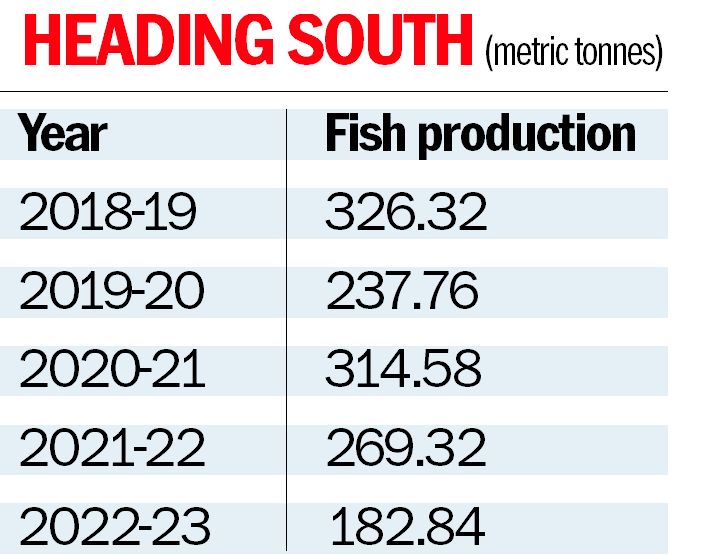The apprehension that setting up of hydroelectric power projects in Himachal will have an adverse impact on the flora and fauna of the area may have come true as a decline in fish production at the Gobind Sagar dam has been recorded.

Key findings of study
A study conducted by the ICAR-run Central Inland Fisheries Research Institute (CIFRI), Kolkata, has indicated that the decline in fish production in the Gobind Sagar over the past few years could be due to the coming up of the 800 MW Kol Dam and 1,100 MW Karcham Wangtoo hydropower projects. There are five major water bodies in Himachal – Gobind Sagar, Kol Dam, Pong Dam, Ranjit Sagar and Chamera reservoir. Studies have revealed that contrary to the decline in fish production in the Gobind Sagar dam, which has a total area of 16,000 hectares, there has been an increase in fish production in other four water bodies. It is after the fish production in the Gobind Sagar dam that the state Fisheries Department asked the CIFRI to undertake a study to ascertain the reasons for it.
“The task of ascertaining the reasons for the decline in fish production in the Gobind Sagar dam was entrusted to the CIFRI, which had submitted the report. “The decline has been mainly attributed to habitat disturbance due to wide fluctuation in water spread, which is released by power projects twice a day,” says Vivek Chandel, Director, Fisheries.
“The CIFRI has suggested some remedial measures like regular stocking of bigger size fish seed of more than 100 mm,” says Chandel. Besides, the CIFRI has recommended stocking of fingerlings of Catla, Rohu and Mrigal (IMC), common carp and silver carp with a stocking density of 300 per hectare per year for five consecutive years and that too in a particular ratio.
There are a total of 4,594 fisherman, who have formed 37 cooperative societies, engaged in fishing in the Gobind Sagar dam, which falls in Bilaspur and Una districts. There is a total ban on fishing from June 15 to August 15 every year when it is their breeding season. “A monthly financial assistance of Rs 4,500 is given to fishermen during the two-month ban period, which is jointly provided by the Central and state government,” says Chanchal Thakur, Deputy Director, Fisheries.